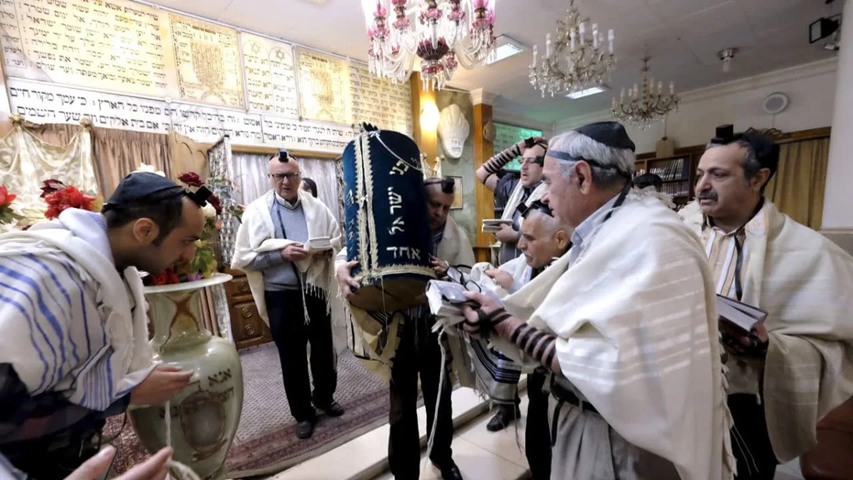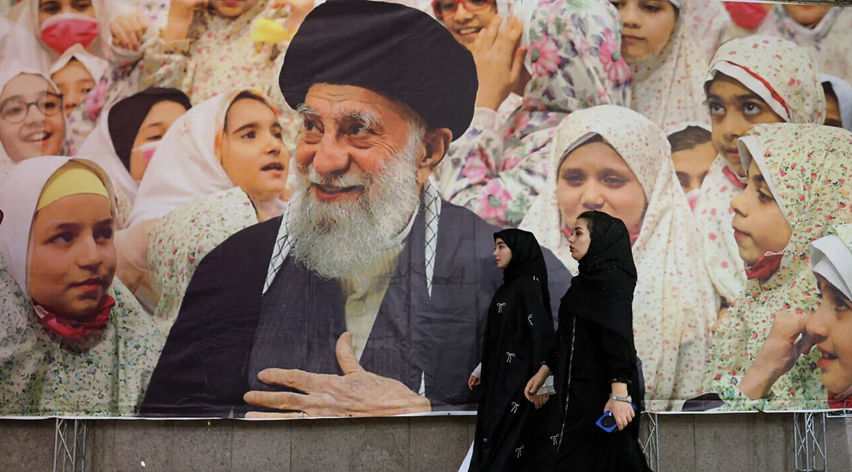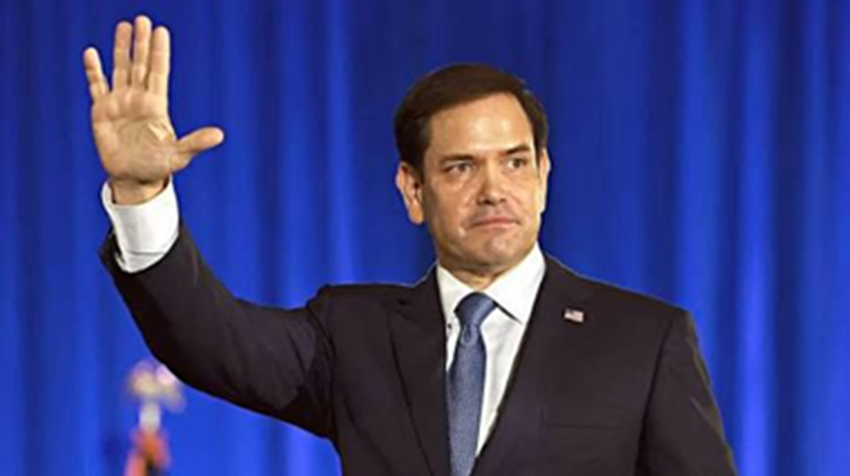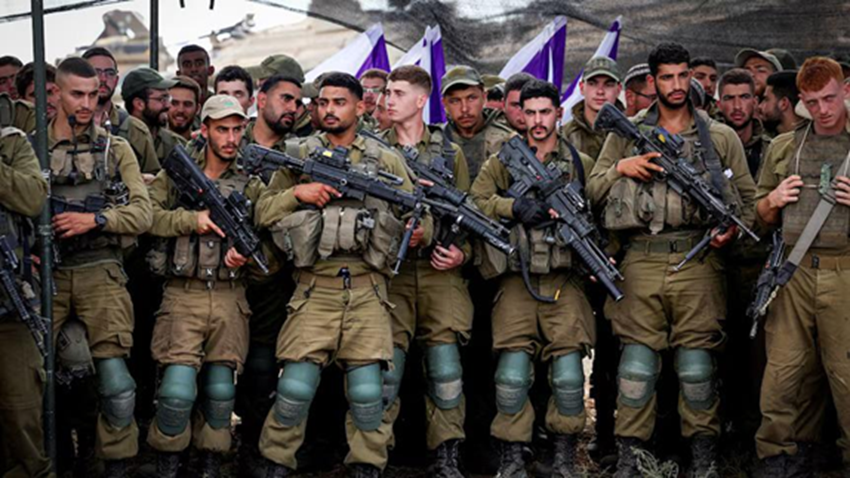Iranian Jews pray at the Abrishami synagogue at Palestine street in Tehran December 24, 2015. Credit: Raheb Homovandi - Reuters
Just one day before the Israeli aerial attack on Iran, its Jewish community in Tehran has declared that its members “live in complete security under the leadership of the Islamic Republic,” according to the newly released annual report of the Central Jewish Committee of Tehran, the official representative body of Iran’s remaining Jews.
The 20-page report, covering activities through the Iranian year 1402 (March 2023-February 2024), was published on Thursday, June 6, 2025, and includes detailed updates on religious life, community services, property management, youth education, and relations with the government.
The report opens with praise for the late ayatollah Ruhollah Khomeini, founder of the Islamic Republic, and pledges of loyalty to Supreme Leader Ayatollah Ali Khamenei and the Iranian constitution.
“Our community continues to perform religious duties with full freedom and dignity, as in the past, under conditions of public safety and security,” the committee wrote. “The Jews of Iran live peacefully in this land.”
The document highlights both the community’s resilience and the constraints it faces. Frequent declarations of ideological opposition to Zionism and expressions of solidarity with the Islamic Republic appear alongside reports on Torah education, kosher food supervision, youth sports, and elderly care. The committee emphasized participation in official Iranian state events, including Quds Day marches, in condemnation of the Zionist occupation and in solidarity with the oppressed people of Palestine.
While affirming the Jewish community’s place in Iranian society, the report also described mounting financial difficulties. “The effects of the sanctions and inflation have not spared the Tehran Jewish Committee,” the report stated, citing rising costs that have far outpaced income from community assets. “Despite this, with the help of all committee members, we have worked to ensure that key institutions – like the kindergartens, the elderly center, and cultural centers – remain protected.”
The report said that over 30 billion Iranian rials (roughly $60,000 at unofficial exchange rates) had been spent over the past year on welfare assistance, including tuition subsidies, food support, medical aid, and housing assistance for low-income families and elderly residents.
In one passage, the committee thanked security officials and government ministries for protecting Jewish rights. “We appreciate the efforts of the Ministry of Culture and Islamic Guidance, the Judiciary, the Foundation for the Oppressed, and all government authorities who have supported our community’s dignity and security,” it wrote.
The report also detailed the production and distribution of kosher food – especially matzah before Passover – as well as strict supervision of kosher poultry and restaurants. Community members in cities including Shiraz, Isfahan, Kermanshah, and Yazd reportedly received kosher deliveries coordinated from Tehran.
While many of the report’s religious and social updates mirror those of Jewish communities elsewhere, the political tone is unique to Iranian Jewry. The committee reiterated its long-standing opposition to Zionism, asserting that “Judaism is a religion, not a political ideology,” and that Iranian Jews “completely separate themselves from the Zionist regime.”
Such activities may be a survival strategy
Scholars and Iranian Jewish exiles have long explained such statements as a survival strategy. “This is the language you have to speak to maintain autonomy in Iran,” said an Israeli researcher familiar with Jewish life in the country. “They’re walking a fine line – showing loyalty to the regime while continuing to preserve their traditions.”
The Tehran Jewish Committee operates dozens of institutions, including synagogues, schools, sports clubs, a youth center, and the historic Beheshtieh Jewish cemetery. The report notes that the cemetery was recently connected to the city’s natural gas system, and that dozens of gravestones and structures were restored this year.
Tehran’s Jewish population, estimated to number fewer than 10,000 today, remains the largest in any Muslim-majority country. But the community has shrunk dramatically since the 1979 Islamic Revolution, when more than 80,000 Jews lived in Iran.
The report concludes with a call for continued unity and charity. “We must never forget the joy that comes from helping our fellow man,” it says. “Empowering the poor and eliminating need is among the highest acts of worship before God.”
Source: The Jerusalem Post


































